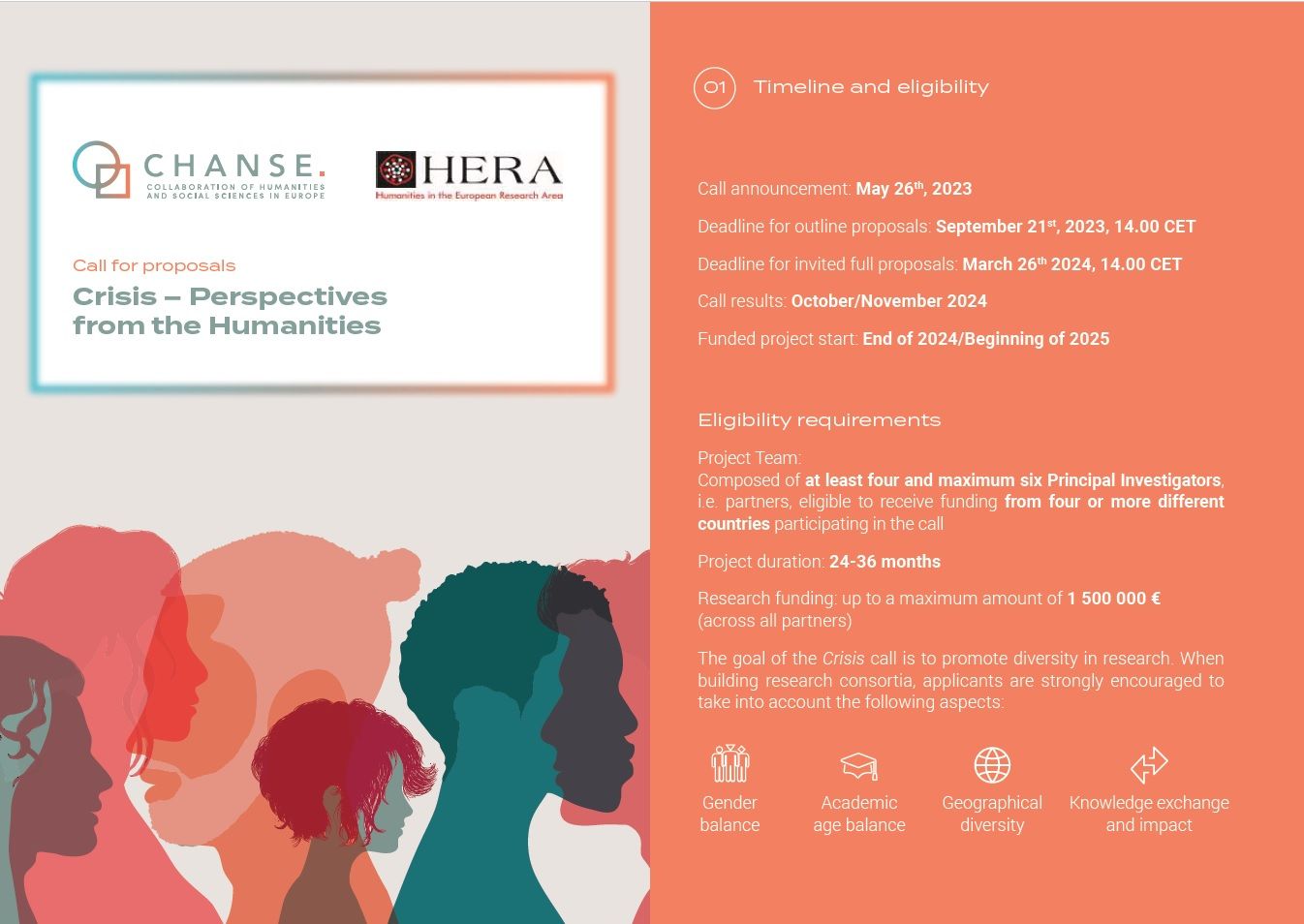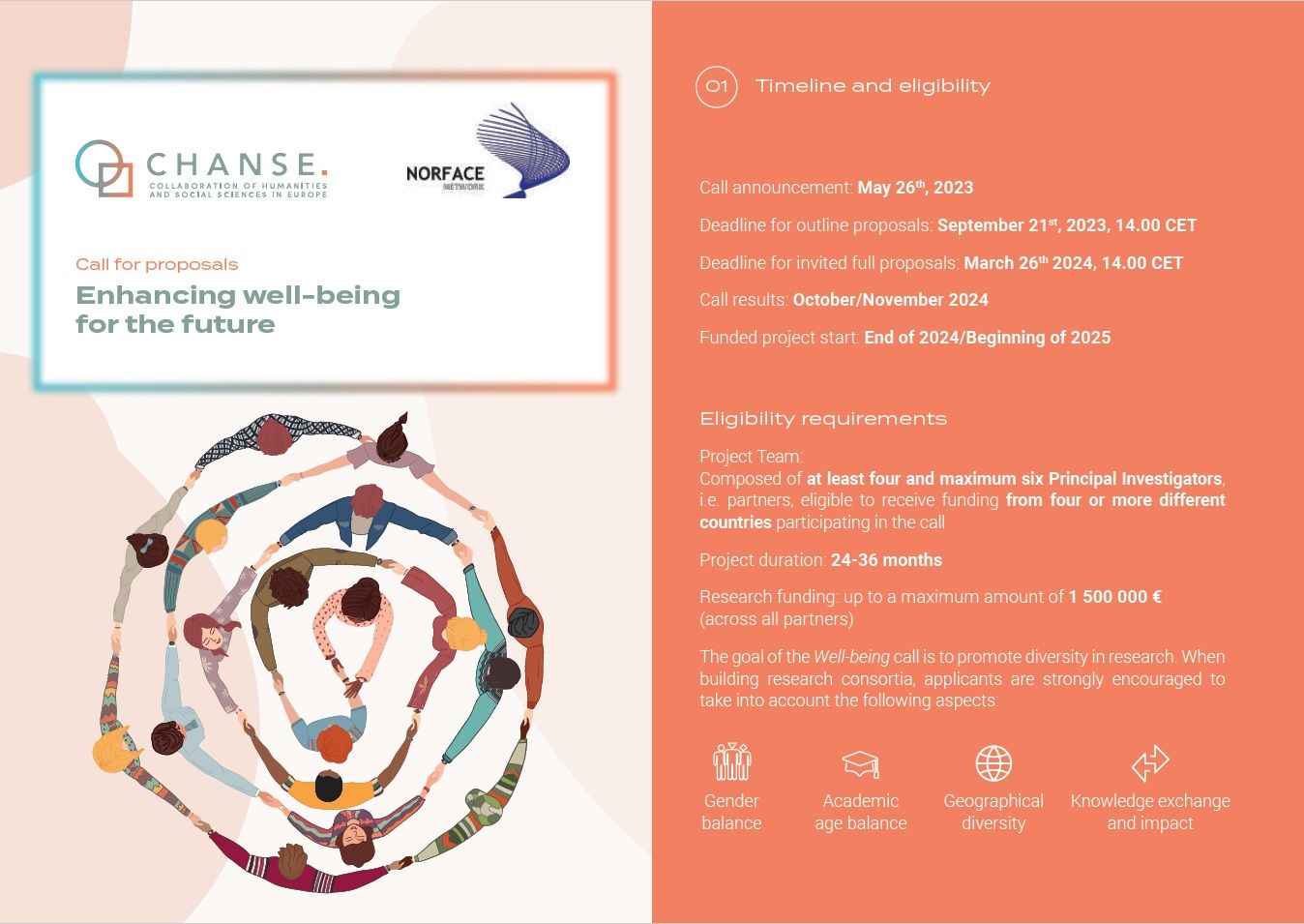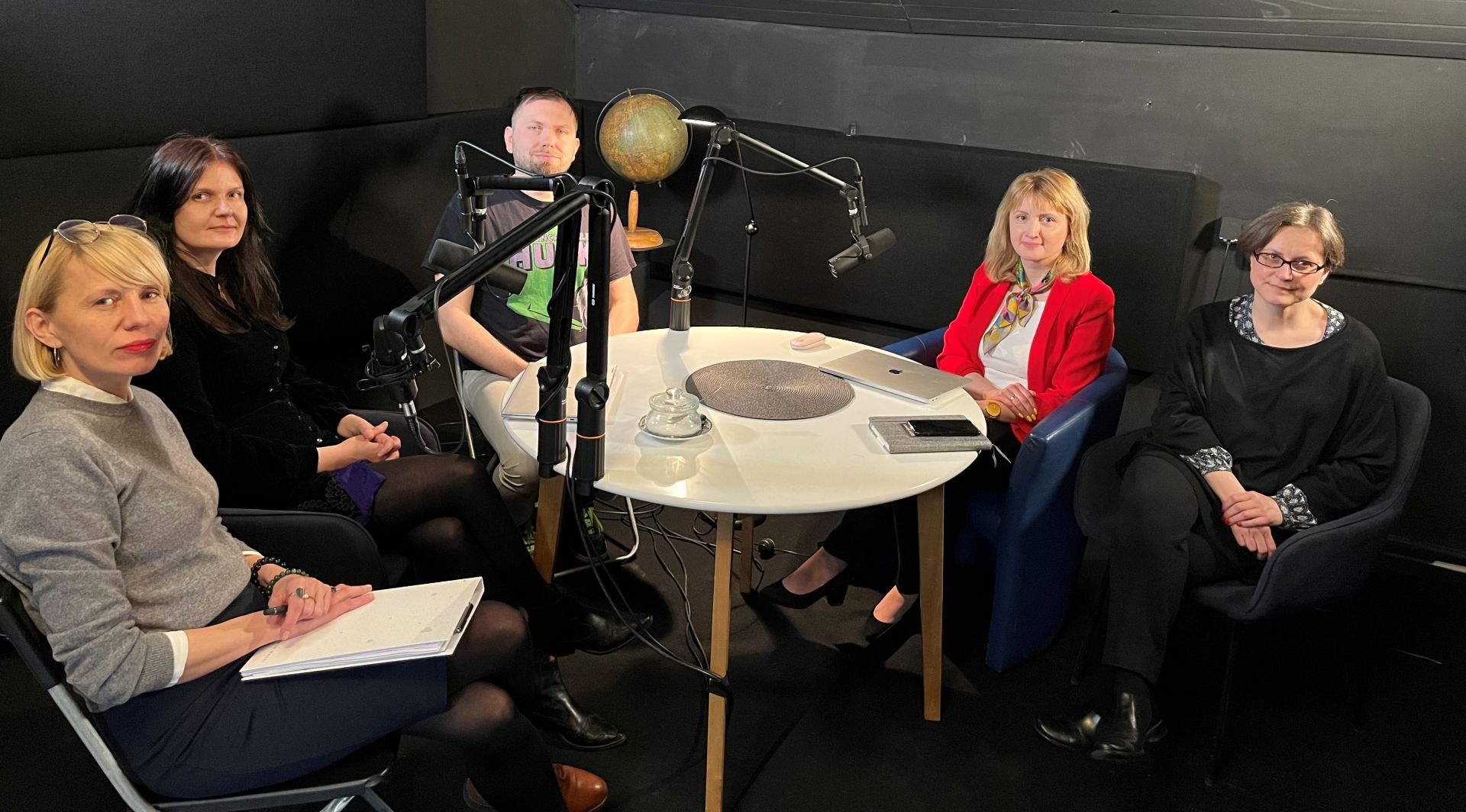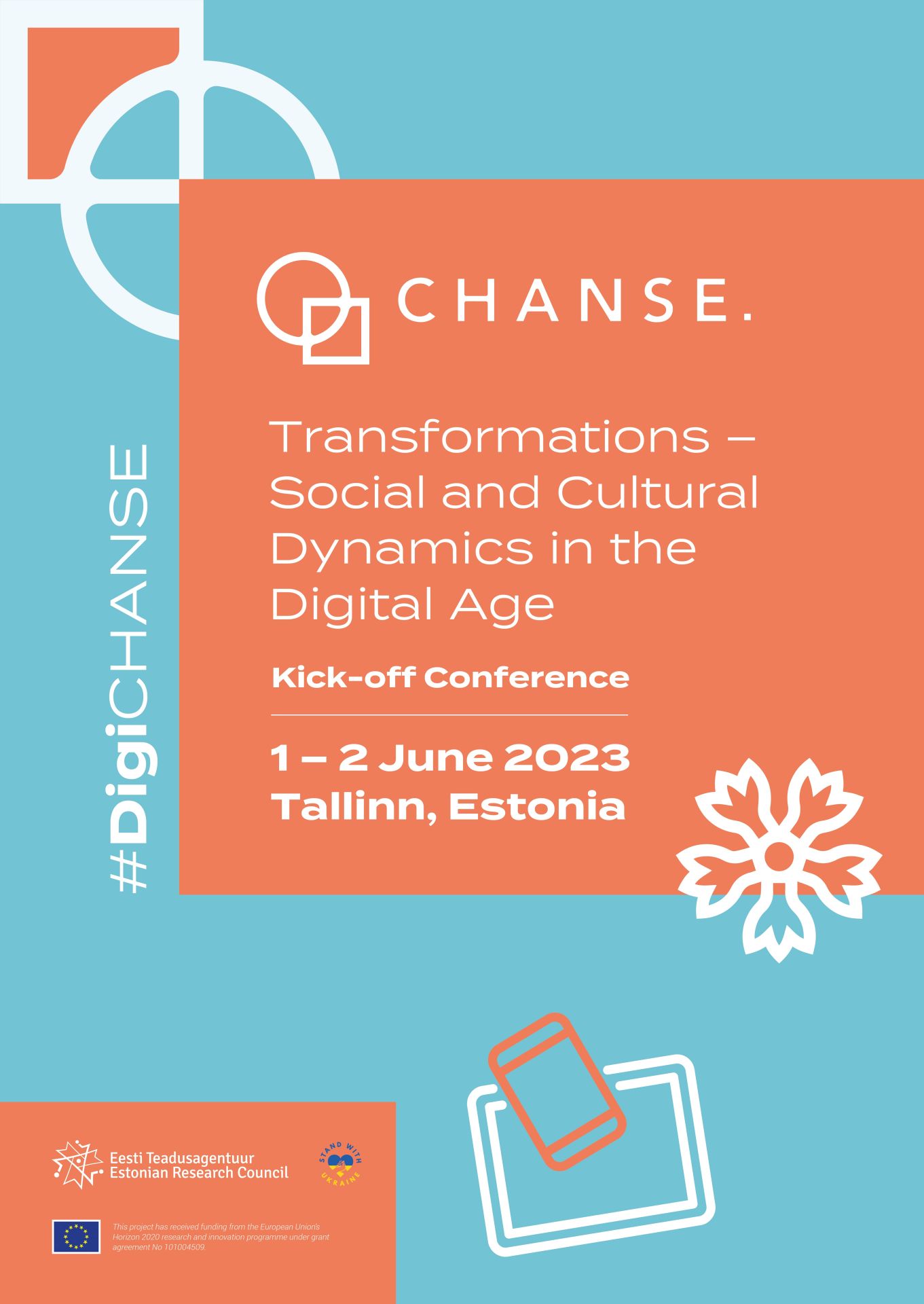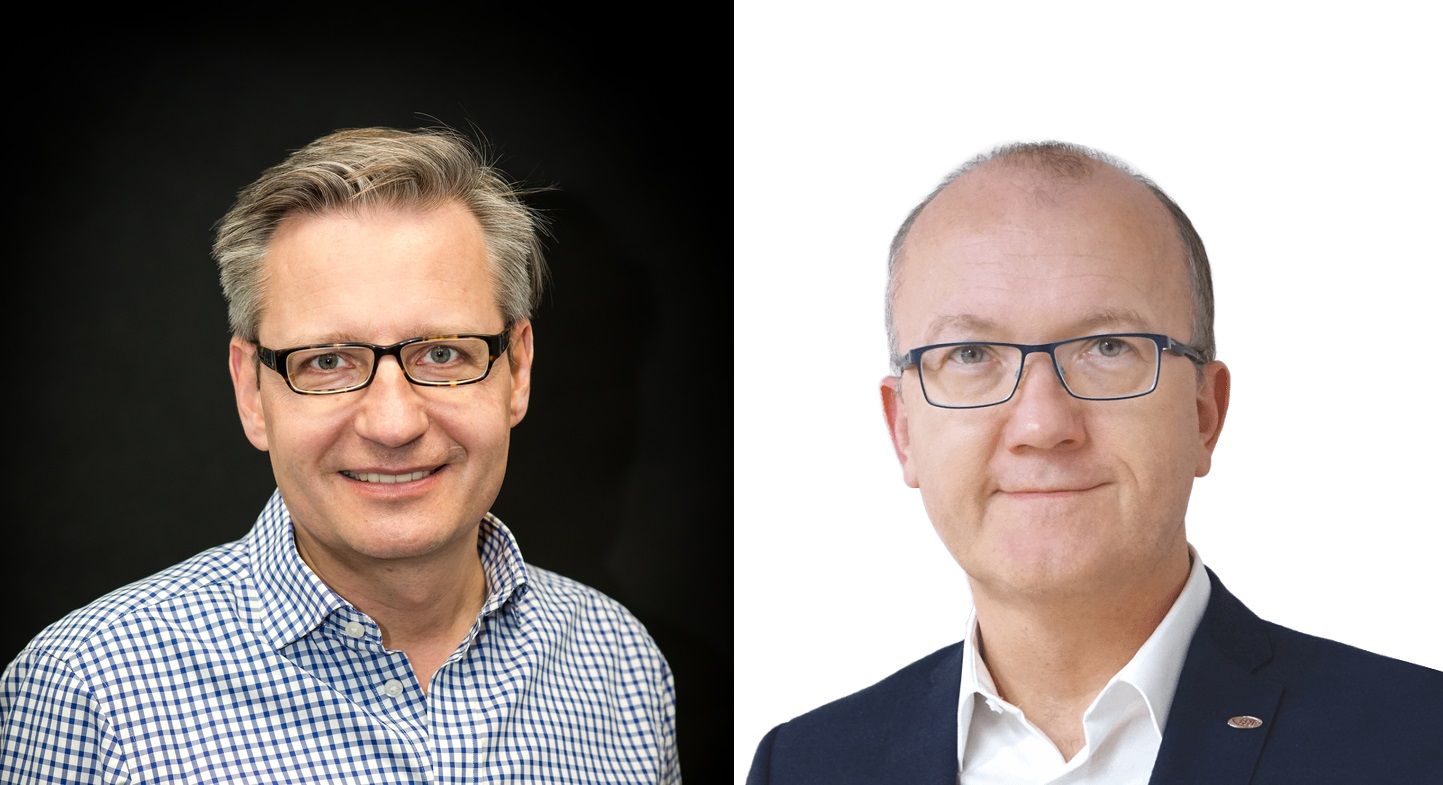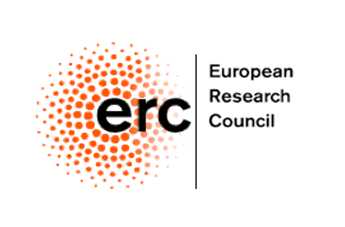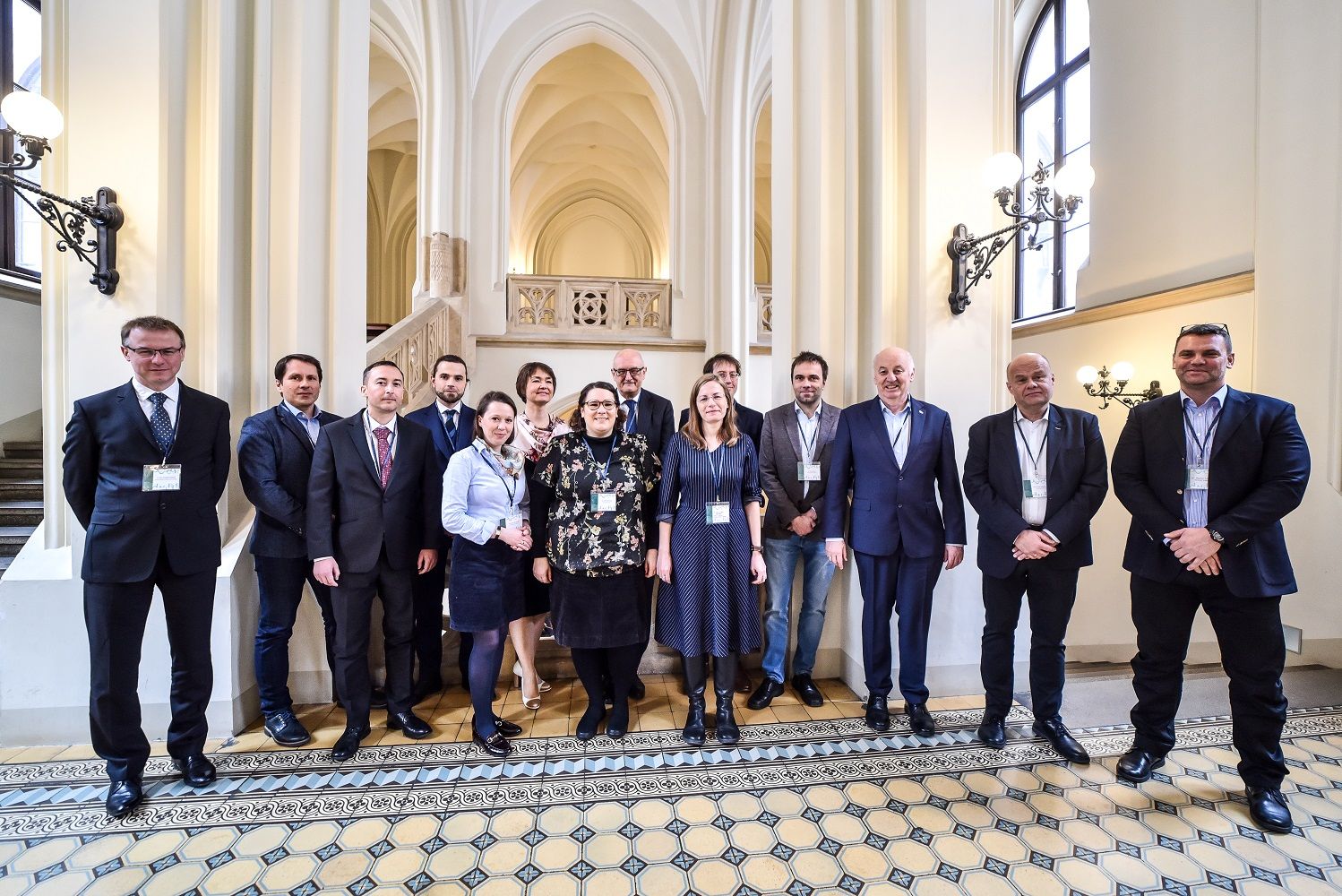New calls for transnational research projects on Crisis and Well-being
We are pleased to inform that CHANSE (Collaboration of Humanities and Social Sciences in Europe) consortium in collaboration with HERA (The Humanities in the European Research Area) and NORFACE (The New Opportunities for Research Funding Agency Cooperation in Europe) Networks pre-announce calls for international research projects in the following themes:
- Crisis - Perspectives from the Humanities – organised jointly by CHANSE and HERA
- Enhancing well-being for the future – organised jointly by CHANSE and NORFACE
Information about the calls
Full calls topic description is available here:
Crisis - Perspectives from the Humanities – theme description
Enhancing well-being for the future – theme description
Project team: Composed of at least four and maximum six Principal Investigators, i.e. partners, eligible to receive funding from the CHANSE and HERA/NORFACE funding organisations from four or more different countries participating in the call.
Project duration: 24-36 months
Cap on funding for one international project: 1 500 000 EUR (across all partners)
Indicative timeline
Official calls announcement and launch of the submission system: May 26th, 2023
Deadline for outline proposals: September 21st, 2023, 14.00 CET
Deadline for invited full proposals: March 26th 2024, 14.00 CET
Call results: October/November 2024
Earliest funded project start: End of 2024/Beginning of 2025
Countries participating in the calls
Crisis - Perspectives from the Humanities: Austria, Belgium, Bulgaria, Croatia, Czechia*, Denmark*, Estonia, Finland, Ireland, Latvia, Lithuania, Norway, Poland, Portugal, Romania Slovakia, Slovenia, Spain, Sweden, Switzerland, United Kingdom
Enhancing well-being for the future: Austria, Belgium, Bulgaria, Croatia, Czechia*, Estonia, Germany*, Latvia, Lithuania, Luxembourg, Poland, Romania, Slovenia, Spain, Sweden, Switzerland, United Kingdom
*The participation in the calls will be confirmed in the Call announcement on 26 May 2023. The participation of France will also be confirmed in the Call announcement.
PARTNER SEARCH TOOL
In order to facilitate the process of forming research consortia, we offer applicants a partner search tool available here. This tool can be used by projects looking for partners and partners looking for projects.
Zapowiedź tematów konkursów ma charakter informacyjny. Szczegółowe warunki zostaną określone w treści oficjalnych ogłoszeń.
Contact
Call Crisis - Perspectives from the Humanities: crisis@ncn.gov.pl
Call Enhancing well-being for the future: wellbeing@ncn.gov.pl
CHANSE Programme has received funding from the European Union's Horizon 2020 research and innovation programme under grant agreement No 101004509.

